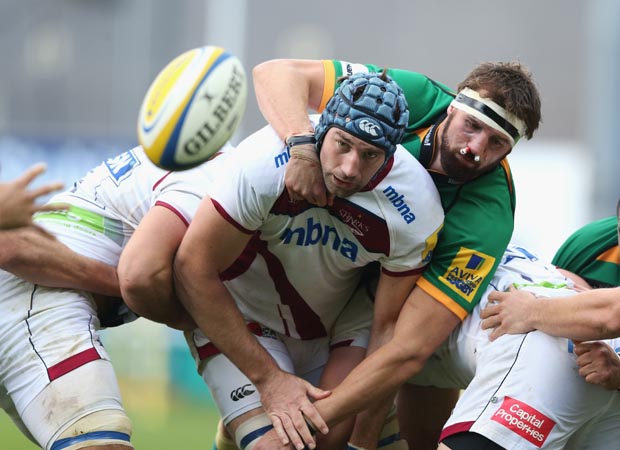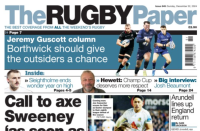 Spin a coin and choose what you like, that seems to be how the game of rugby is at the moment. Watching last week’s Premiership games I was stunned at the almost random nature of some of the refereeing decisions.
Spin a coin and choose what you like, that seems to be how the game of rugby is at the moment. Watching last week’s Premiership games I was stunned at the almost random nature of some of the refereeing decisions.
I am not denigrating the efforts of referees, after all, we can’t have a game without them and there were some exciting matches, but it’s been a while since I’ve watched a number of games live.
What amazed me was how, even within the same game, some of the refereeing was so arbitrary as to confuse players and fans and even though it would not have changed the result of the games, it did make a difference to the opportunity.
In the Northampton v Sale match a 72nd minute rally against a dominant Northampton saw Sale split the home pack with a driving maul that was virtually sprinting to the try line only to be pulled down just short and the ball carrier held up. Referee Andrew Small went upstairs to see if the ball was grounded (even though it clearly wasn’t) and indicated a 5m metre scrum.
Small failed to register the fact that Saints had deliberately collapsed the maul and that he should have awarded Sale a penalty try as it was obvious that had it not been for an act of foul play by a Northampton player, a try would have been scored.
Although that would not have changed the result, it could have enabled Sale to get a losing bonus point which could be vital later in the season.
The scrums in all the games took an age to set and complete, and despite the fact very few collapsed or had to be reformed, it had a negative impact on the flow of the games. The referees’ instructions to the players to crouch bind and set, took ages as they seemed to take an inordinately long pause between issuing each command.
I am sure fans find it slightly perplexing that it takes so long for what should be a simple calling together of the two packs. What’s more puzzling to me are the penalties being awarded against front-rowers that are driven up, out of the scrum.
How many times have we seen a scrum drive thwarted with a penalty because one player or another is forced up by his opposite number? If a player is being forced up it is the player driving up rather than forward who should be penalised.
It is easy for a referee to tell if a player deliberately stands up or is driven out of the top of the scrum by pressure and a player should not be penalised if he is forced out by pressure, because technically speaking it is not his fault.
If the scrums are equal in power it is sometimes impossible for forward movement, so the front rows are forced up. This is a surprisingly rare event with most ‘pop outs’ a result of a player deliberately driving the head of his opposite number inwards and upwards. This becomes more likely if the players know that the referee will penalise the player who is forced out.
This raises player welfare issues because the level of pressure being targeted at the neck of the opposition is measured in tonnes not pounds and although it may not cause immediate injury it will have a cumulative effect that could lead to career-ending injuries.
The scrums may no longer be collapsing and reforming but one thing that has quickly returned is the blind eye that referees turn to the crooked feed. Despite the IRB’s direction to referees to enforce the straight put in, we are only a few weeks into the season and we are back to scrum-halves feeding with impunity.
*This article was first published in The Rugby Paper on October 19.
























Pingback: ข่าวบอล